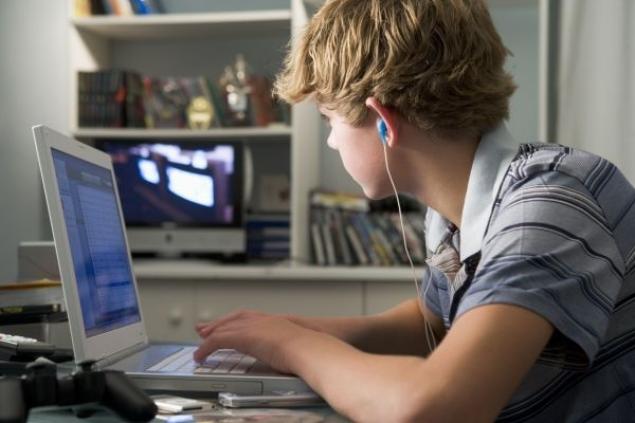Waldorf News
Save the Readers! A Defense of “Deep Reading”

By ANNIE MURPHY PAUL
When a minaret dating from the twelfth century was toppled in the fighting between rebels and government forces in Aleppo, Syria, earlier this spring, we recognized that more than a building had been lost. The destruction of irreplaceable artifacts—like the massive Buddha statues dynamited in the Bamiyan Valley in Afghanistan in 2001 and the ancient texts burned and looted in Iraq in 2003—leaves us less equipped to understand ourselves and where we came from, less able to enlarge ourselves with the awe and pleasure that these creations once evoked.
Which is why we should care about the survival of a human treasure threatened right here at home: the deep reader. “Deep reading”—as opposed to the often superficial reading we do on the web—is an endangered practice, one we ought to take steps to preserve as we would a historic building or a significant work of art. Its disappearance would imperil the intellectual and emotional development of generations growing up online, as well as the perpetuation of a critical part of our culture: the novels, poems and other kinds of literature that can be appreciated only by readers whose brains, quite literally, have been trained to apprehend them.
Recent research in cognitive science, psychology and neuroscience has demonstrated that deep reading—slow, immersive, rich in sensory detail and emotional and moral complexity—is a distinctive experience, different in kind from the mere decoding of words. Although deep reading does not, strictly speaking, require a conventional book, the built-in limits of the printed page are uniquely conducive to the deep reading experience. A book’s lack of hyperlinks, for example, frees the reader from making decisions—Should I click on this link or not?—allowing her to remain fully immersed in the narrative.
 That immersion is supported by the way the brain handles language rich in detail, allusion and metaphor: by creating a mental representation that draws on the same brain regions that would be active if the scene were unfolding in real life. The emotional situations and moral dilemmas that are the stuff of literature are also vigorous exercise for the brain, propelling us inside the heads of fictional characters and even, studies suggest, increasing our real-life capacity for empathy.
That immersion is supported by the way the brain handles language rich in detail, allusion and metaphor: by creating a mental representation that draws on the same brain regions that would be active if the scene were unfolding in real life. The emotional situations and moral dilemmas that are the stuff of literature are also vigorous exercise for the brain, propelling us inside the heads of fictional characters and even, studies suggest, increasing our real-life capacity for empathy.
None of this is likely to happen when we’re scrolling through TMZ.com. Although we call the activity by the same name, the deep reading of books and the information-driven reading we do on the web are very different, both in the experience they produce and in the capacities they develop. A growing body of evidence suggests that online reading may be less engaging and less satisfying, even for the “digital natives” for whom it is so familiar. Last month, for example, Britain’s National Literacy Trust released the results of a study of 34,910 young people aged eight to sixteen. Researchers reported that 39% of children and teens read daily using electronic devices, but only 28% read printed materials every day. Those who read only onscreen were three times less likely to say they enjoy reading very much, and a third less likely to have a favorite book. The study also found that young people who read daily only onscreen were nearly two times less likely to be above-average readers than those who read daily in print or both in print and onscreen.
To understand why we should be concerned about how young people read, and not just whether they’re reading at all, it helps to know something about the way the ability to read evolved. “Human beings were never born to read,” notes Maryanne Wolf, director of the Center for Reading and Language Research at Tufts University and author of Proust and the Squid: The Story and Science of the Reading Brain. Unlike the ability to understand and produce spoken language, which under normal circumstances will unfold according to a program dictated by our genes, the ability to read must be painstakingly acquired by each individual. The “reading circuits” we construct are recruited from structures in the brain that evolved for other purposes—and these circuits can be feeble or they can be robust, depending on how often and how vigorously we use them.
The deep reader, protected from distractions and attuned to the nuances of language, enters a state that psychologist Victor Nell, in a study of the psychology of pleasure reading, likens to a hypnotic trance. Nell found that when readers are enjoying the experience the most, the pace of their reading actually slows. The combination of fast, fluent decoding of words and slow, unhurried progress on the page gives deep readers time to enrich their reading with reflection, analysis, and their own memories and opinions. It gives them time to establish an intimate relationship with the author, the two of them engaged in an extended and ardent conversation like people falling in love.

This is not reading as many young people are coming to know it. Their reading is pragmatic and instrumental: the difference between what literary critic Frank Kermode calls “carnal reading” and “spiritual reading.” If we allow our offspring to believe that carnal reading is all there is—if we don’t open the door to spiritual reading, through an early insistence on discipline and practice—we will have cheated them of an enjoyable, even ecstatic experience they would not otherwise encounter. And we will have deprived them of an elevating and enlightening experience that will enlarge them as people. Observing young people’s attachment to digital devices, some progressive educators and permissive parents talk about needing to “meet kids where they are,” molding instruction around their onscreen habits. This is mistaken. We need, rather, to show them someplace they’ve never been, a place only deep reading can take them.
There’s another reason to work to save deep reading: the preservation of a cultural treasure. Like information on floppy disks and cassette tapes that may soon be lost because the equipment to play it no longer exists, properly-educated people are the only “equipment,” the only beings, who can unlock the wealth of insight and wisdom that lie in our culture’s novels and poems. When the library of Alexandria was lost to fire, the scarce resource was books themselves. Today, with billions of books in print and stored online, the endangered breed is not books but readers. Unless we train the younger generation to engage in deep reading, we will find ourselves with our culture’s riches locked away in a vault: books everywhere and no one truly able to read them.
“Knitting is more important than handwork” Waldorf in the Huffington Post!
“Old-fashioned play builds serious skills”
And many more articles and news about Waldorf education and parenting at waldorftoday.com
This article originally appeared at anniemurphypaul.com. To view the article at source, click here.
 Space speaks. Its language is movement.
Space speaks. Its language is movement. Bay Area Teacher Training
Bay Area Teacher Training Storytelling Skills for Teachers
Storytelling Skills for Teachers Discovering the Wisdom of Childhood
Discovering the Wisdom of Childhood Jamie York Books, Resources, Workshops
Jamie York Books, Resources, Workshops Caring for All Stages of Life
Caring for All Stages of Life Summer Programs - Culminating Class Trips
Summer Programs - Culminating Class Trips Bringing Love to Learning for a Lifetime
Bringing Love to Learning for a Lifetime Roadmap to Literacy Books & Courses
Roadmap to Literacy Books & Courses Grade Level Training in Southern California
Grade Level Training in Southern California Quality Education in the Heartland
Quality Education in the Heartland Everything a Teacher Needs
Everything a Teacher Needs Waldorf EC Training & Intensives in Canada
Waldorf EC Training & Intensives in Canada The Art of Administration and Leadership
The Art of Administration and Leadership Association for a Healing Education
Association for a Healing Education Apply Today: New Cohort Starts Nov. 2025
Apply Today: New Cohort Starts Nov. 2025 Transforming Voices Worldwide
Transforming Voices Worldwide Flexible preparation for your new grade
Flexible preparation for your new grade The Journey is Everything
The Journey is Everything Waldorf-inspired Homeschool Curriculum
Waldorf-inspired Homeschool Curriculum ~ Ensoul Your World With Color ~
~ Ensoul Your World With Color ~ Middle School Science With Roberto Trostli
Middle School Science With Roberto Trostli Immersive Academics and Arts
Immersive Academics and Arts Art of Teaching Summer Courses 2025
Art of Teaching Summer Courses 2025 Dancing for All Ages
Dancing for All Ages Train to Teach in Seattle
Train to Teach in Seattle Full-Time Teacher Education
Full-Time Teacher Education RSS Feeds
RSS Feeds